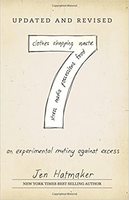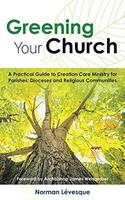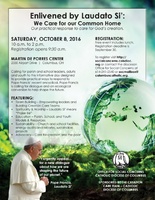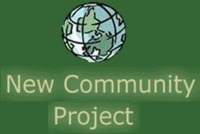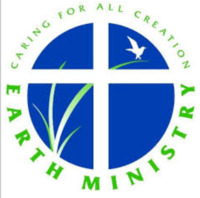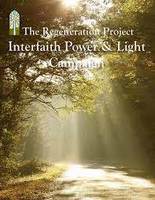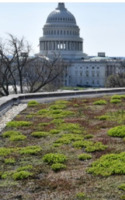Search
75 items
-
Eco-Prayer Guidelines
Eco–Prayer Guidelines offers suggestions for eco-prayer and good will intentions. They describe eco-prayer principles and explain why praying and positive intentions are important. Their 9 principles are listed in the guidelines and more information on the definition of eco-theology. -
7: An Experimental Mutiny Against Excess
Overwhelmed by the excess in her own life, Jen Hatmaker and her family set out on a project they called “Seven.” Highlighting seven areas of excess, they committed to living a little more simply every month. Originally published in 2011 and updated in 2017, 7 has been utilized for book studies in many Christian faith communities. For those overwhelmed with the task of implementing creation care in their own lives, Hatmaker’s memoir tells of her family’s practical and faith inspired experiment. More information about Hatmaker’s project can be found on her blog. -
A Prayer for Labour Day
As Labor Day approaches, it is important to remember to relax and enjoy a day free of work. Godspace (https://godspacelight.com/about/) has offered a prayer to give thanks for the hard work of laborers and communities, and to reflect on gratitude, mercy, service, justice, and the beauty of creation through God’s work. This prayer is adapted from a prayer found on the Christ Church Ontario website. -
For Love of Lavender
For Love of Lavender is an account of how Christine Sine, creator of Godspace and writer for Evangelical Environmental Network MOMS, encountered God through the beauty, fragrance, and abundance of the lavender in her garden. Reflecting on her garden informs her of God's work and calls to mind numerous bible verses, including Proverbs 27:9: The heart is delighted by the fragrance of oil and sweet perfumes, and in just the same way, the soul is sweetened by the wise counsel of a friend. Christine also mentions how to use these lessons to teach children. -
Greening Your Church
"A Practical Guide to Creation Care Ministry for Parishes, Dioceses and Religious Communities," as this book's subtitle reads, author Norman Lévesque identifies and outlines strategies to creating environmentally friendly congregations. In 104 pages, learn about the theology of creation care ministry and how to green-ify your community to reduce impacts on God's creation. ISBN: 9782896466368 -
Interfaith Center on Corporate Responsibility
The Interfaith Center on Corporate Responsibility is an organization that advocates for better labor laws, financial services, sustainable development, and accessible health care. It is their mission to incorporate social values into corporate actions. Founded in 1971, the ICCR has been an integral part of advocating for resilient and sustainable corporations, but has been met with pushback from industries that do not want to follow regulation and social values. More information about programs, resources, and membership is available on their website. -
Engaged Organizations: St. Vincent de Paul School, Mt. Vernon, OH
Creation care work at St Vincent de Paul School, Mt. Vernon, began in 2006 when the school received funding from the Knights of Columbus to purchase a dishwasher for their kitchen. Following this, the school began participating in the Hope Now program – an organization that provides used old donated doors to build tables. The school provides transportation to their annual K-6 field trip to The Brown Family Environmental Center at Kenyon College and their annual 5th grade summer camp through Lutheran Outdoor Ministries in Ohio (students take turns weighing food waste). Additional sustainability projects include collaboration with the parish and the local community. The school participated in an all-parish project through the Green Tree Plastics company’s A Bench for Caps sustainability program (students collected and sorted bottle caps in exchange for three benches). The school plans to create a grotto area using their three recycled benches. In order to foster green living and healthy community-school relations, the school provided planter flowers to local businesses.
Administrators at St. Vincent de Paul acknowledge the importance of maintaining social justice programs in accordance with Laudato Si's urgent message to care for the poor. Students from Beth’s Robinson's 6th grade social studies classes participate in a demographics project. Each year students select one continent, usually Africa, to learn more about the conditions of poverty. The class then raises money through various fundraisers and donate to parts of the continent through Catholic Relief Services. An upcoming project includes having students sew plastic bags together to create tarps to be donated to homeless shelters in the area.
-
Engaged Organizations: Recyclean, Inc. Kenosha, WI
Recyclean, Inc., is a deconstruction company located in Kenosha, Wisconsin, with a new branch to be opened in Columbus, OH in the near future. About 15 years ago, the owner recognized that there was too much waste entering landfills, as construction landfill waste is predicted to double by the year 2025. The company focuses on the reuse and recycling of materials and structures from the deconstruction work of their residential projects, which comprises 70 percent of their business, as a way to decrease the amount of materials that enter the landfills. Prior to renovations and tear downs, the company provides a quote for the materials and a 3rd party independent appraiser assigns value to the estimated donation value. Some of the materials are donated to community charities – i.e. Restores of Habitat for Humanity or Columbus Architectural Salvage. Homeowner are able to choose a charity based on the options provided by the company. Other materials, such as brick and wood, are recycled (purchased for use elsewhere). Recyclean, Inc. aims for 70 percent of the materials to be recycled and reused. The company also provides facilitation for the transfer, including delivery of materials and building structures, to their respective designated entities.
-
Engaged Organizations: Habitat for Humanity Restore
Habitat MidOhio Restores aims to reduce costs associated with affordable housing construction as well as reduce the amount of waste going into landfills. Restores accepts new or used household items and materials from individuals or businesses. The proceeds then assist with Habitat MidOhio's administrative costs in building affordable housing.
Recycling Inc. often donates there following their building deconstruction projects. -
Low-Cost Construction Techniques for Earth Keepers
Technology for the Poor, a non-profit charitable organization based in Westerville, Ohio, discuss their techniques for low cost construction from an excerpt from their manual:
"The Construction Techniques described in this manual use straw as filler in wall sections. It further describes how one need not have to bale the straw to use it for wall construction. The author used the techniques described in this manual to build plastered straw structures in India and Pennsylvania. The pictures in the following pages should provide sufficient information for anyone to construct a low-cost, earth-friendly building using straw as building material for the walls." -
Today is registration deadline for Columbus Diocese Creation Care Conference on Oct. 8
The Columbus Diocese is offering a day of reflection, inspiration, study, and sharing of resources to help Columbus area Catholic communities respond to Pope Francis’ environmental urgings in his recent encyclical, Laudato Si: Caring for Our Common Home. The conference: “Enlivened by Laudato Si’: We Care for our Common Home: Our practical response to care for God’s creation” will be held at the Martin De Porres Center in Columbus from 10am-2pm on Saturday, October 8.
The conference will feature creation care team building sessions, spirituality and worship, education, sustainability information for energy savings, and advocacy to care for creation and the poor. Dr. Greg Hitzhusen of the School of Environment and Natural Resources at Ohio State will deliver a keynote address. -
Science Mike to speak tonight at Broad Street Presbyterian
Event Announcement:
Columbus Broad Street Presbyterian Church and the Presbytery of Scioto Valley Commission for Nurture and Outreach will host Science Mike on Friday, October 14.
Mike McHargue is the host of two podcasts, Ask Science Mike and The Liturgists. Mike, an amazing and popular communicator, will be recording an episode of Ask Science Mike during his evening presentation at Broad Street PC.
Tickets are $15 and are available from: www.findinggodinthewaves.com/tour
-
Profile: Rev. Pat Watkins
The Reverend Pat Watkins is a missionary with the General Board of Global Ministries of The United Methodist Church. He is guiding a new, globally-focused United Methodist Ministry with God’s Renewed Creation, based at Global Ministries and also closely related to the Council of Bishops. While faith has traditionally looked at relationship with God and relationships with other people, he began to see a relationship between faith and the created order. Please click the link below to read more about Reverend Watkins: -
New Community Project Creative Arts Page
The New Community Project created a creative arts page to offer resources for justice, peace, and care for creation. In the caring for creation section, there are skits, checklists, and worship resources all centered around this topic. -
Earth Ministry Songs and Hymns
Earth Ministry has been a leader in engaging faith communities in environmental stewardship and advocacy. They have created a list of songs and hymns from various artist that are related to God's gift of creation. The list was compiled as a resource for creation-honoring worship services. -
The Regeneration Project
The Regeneration Project was created as the parent project of Interfaith Power&Light. It is meant to help deepen the connection between ecology and faith and to help people of faith recognize and fulfill their responsibility for the stewardship of creation. They do so through educational programs for clergy and congregations -
Skits & Readings - Creative Arts and Educational Resources
Worship resources on the themes of justice, peace, and care for creation curated by the New Community Project. This is a list of activities to engage and educate students on christian and sustainability teachings. -
A Buddhist Perspective on the Eco-Crisis from David Loy
This short video consists of David Loy discussing the Buddhist perspective on the Eco-crisis. He begins by describing anata, the belief that all things are constantly changing and there can be no such thing as a permanent self. He then talks about dukkha, which is the idea that human experience is short-lived and suffering results from excessive desire. These ideas come together to describe the Buddhist idea that there is no “self.” Loy maintains that, “our sense of self is usually haunted by a sense of lack.” This sense of lack and false sense of “self,” create issues for people that can be related to consumerism, the Eco-crisis, and more. -
The Worship of Nature
The Worship of Nature is a poem by John Greenleaf Whittier published in 1867. The poem describes nature and forests as a holy place and Whittier makes a comparison to it being an altar. He describes the winds as hymns of praise and the blue sky as the temples arch. -
Environmental Theology in Sikhism
The Sikh scripture declares that the purpose of human beings is to achieve a blissful state and be in harmony with the earth and all creation. They believe that humans have drifted away from that ideal and that this crisis is in need of an immediate and urgent solution. The crisis requires going back to the basic question of the purpose of human beings in this universe and an understanding of ourselves and the Divine creation. -
United Methodist Agency Green Roof
John Hill, from the Board of Church and Society at the United Methodist Agency, narrates the video below about their recent green roof addition. The series of squares used covers the entire area of the flat roof, reducing energy consumption, making the building cooler in the summer and warmer in the winter. In addition, and equally important, it reduces storm water runoff. When it rains, the water remains in the roof rather than adding pollutants into the nearby watershed, which feeds into the Chesapeake Bay. -
Sustainability Photo Contest
This RESTORExchange photo contest is being brought back from the pre-COVID era, and with an added collaboration with the Sustainability Institute. It's based around the question "What does sustainability look like?" This can include sustainability in environmental justice, technology, energy, lifestyle and wellbeing, society and culture, economy and politics, and any other context where you see sustainability in action. We want to see your perspectives and show all the different places that sustainability is practiced! Winning photos will be decided by a panel of judges (yet to be determined), and the top four photos will win a prize! First place will receive $400, second place will receive $300, third place will receive $200, and an honorable mention will receive $100. Submissions will be accepted through March 15, 2023. -
Marianist Environmental Education Center
"The Marianist Environmental Education Center (MEEC) is an environmental education community in the Catholic tradition. In Mary's hope-filled spirit, we preserve and act in communion with the land and educate other communities in sustainability through ecology-based simple living, social justice and spirituality." -
Advent Simplicity Challenge
"This Advent, commit to simplicity. In a season that can mistakenly be focused on gifts and consumption, explore ways to live simply as we hopefully prepare for the coming of Jesus and the restoration of the earth. This year, we’ll be mixing in new daily challenges, as well as accompanying PDFs for folks who prefer not to use the interactive calendar." -
Decolonizing Thanksgiving
"As we head into the Thanksgiving holiday weekend in the United States, it’s great to think about all the things we can be grateful for. It is good to have a time to pause and reflect, to participate in the seasonality of gratitude for the year’s bountiful harvest, and to gather with family and friends. (We’ll ignore the über-consumerism of the day following Thanksgiving…)
Many of us probably know by now, however, that the story many of us learned in school about the first Thanksgiving is rather inaccurate at best, and racist and paternalistic in many ways, with a focus on the Manifest Destiny idea of the divine mandate for Europeans to conquer the “New World” in the name of Christ and country.
A few questions come to mind (at least my mind), for those of us with European-American roots, such as:
Should we even celebrate Thanksgiving, since it’s so tainted with colonialism?
What might it look like to “decolonize” our own understandings and our culture?
How can we do this work in a way that encourages our own folks to partner, rather than making them (our White brethren) feel further ostracized, but while also speaking real truth?
What can we do this Thanksgiving to begin to reconcile relationships damaged in the colonial era, both human to human and human to this land?"


